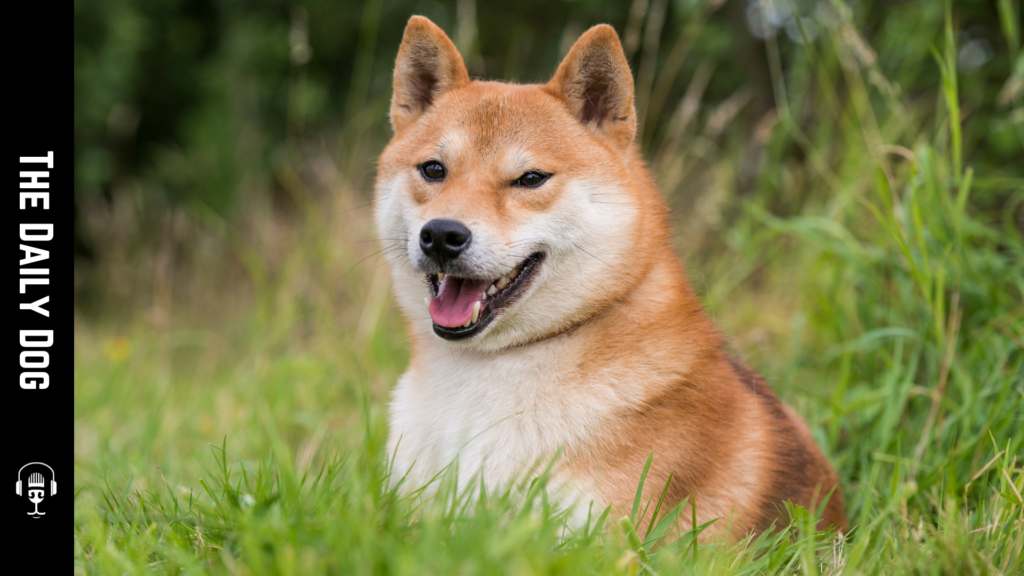The Shiba Inu, often recognized for its fox-like appearance and spirited personality, is a breed that has captured the hearts of dog lovers worldwide. This article delves into the unique characteristics, history, care tips, and benefits of having a Shiba Inu as your companion.
A Brief History of the Shiba Inu
The Shiba Inu is one of the oldest and smallest native Japanese dog breeds, dating back over 2,000 years. Originally bred for hunting small game in the mountainous regions of Japan, these dogs are known for their agility, keen senses, and spirited nature. The name “Shiba Inu” translates to “small dog” in Japanese, which is fitting given their compact size.
During the tumultuous periods of World War II, the breed faced near extinction due to food shortages and wartime destruction. However, dedicated breeders worked passionately to revive the Shiba Inu, and today, it stands as one of Japan’s national treasures.
Distinctive Characteristics
Appearance
Shiba Inus are small to medium-sized dogs, typically weighing between 17 to 23 pounds and standing about 13.5 to 16.5 inches tall at the shoulder. They have a well-balanced, sturdy frame with a distinctive curled tail and erect ears. Their double coat is dense, with a soft undercoat and a stiff outer coat, making them well-suited for various climates. The most common colors are red, sesame (red with black-tipped hairs), black and tan, and cream.
Personality
Shiba Inus are known for their bold, confident, and independent nature. They are intelligent and alert, making them excellent watchdogs. However, their strong-willed demeanor can sometimes lead to stubbornness, so early training and socialization are crucial. Despite their occasionally aloof behavior with strangers, Shibas are affectionate with their families and can form strong bonds with their owners.
Care and Grooming
Exercise Needs
Shiba Inus are active dogs that require regular exercise to keep them healthy and happy. Daily walks, playtime in the yard, and mental stimulation through interactive toys or training sessions are essential. They enjoy outdoor activities and thrive in environments where they can explore and engage in physical challenges.
Grooming
The Shiba Inu’s thick double coat requires regular grooming to manage shedding, particularly during seasonal changes. Brushing them at least once a week is recommended to keep their coat healthy and reduce loose fur around the house. Bathing should be done as needed, but frequent bathing can strip their coat of natural oils.
Nutrition
Providing a balanced diet is crucial for the health of your Shiba Inu. High-quality dog food that meets their specific nutritional needs is essential. Consult with your veterinarian to determine the best diet based on your dog’s age, weight, and activity level.
Health Considerations
While Shiba Inus are generally healthy dogs, they can be prone to certain health issues. Regular veterinary check-ups are essential for early detection and management of potential conditions, such as hip dysplasia, patellar luxation, and certain eye disorders. Responsible breeding practices can help minimize these risks, so it’s important to choose a reputable breeder when looking for a Shiba Inu puppy.
Training and Socialization
Training a Shiba Inu can be both rewarding and challenging. Their intelligent nature allows them to learn commands quickly, but their independent streak can lead to stubbornness. Positive reinforcement methods, such as treats and praise, work best with this breed. Consistency and patience are key to successful training.
Socialization is equally important. Exposing your Shiba Inu to different environments, people, and other animals from a young age helps them develop into well-rounded adults. Puppy classes can provide a great opportunity for socialization while also teaching basic obedience.
Living with a Shiba Inu
Compatibility with Families
Shiba Inus can be excellent family pets, provided they are socialized and trained properly. They generally get along well with children, especially if raised together. However, supervision is necessary, as their spirited nature may lead to rough play. Teaching children how to interact respectfully with dogs is vital for a harmonious household.
Interaction with Other Pets
While Shiba Inus can coexist with other pets, their strong prey drive means caution is needed, especially around smaller animals. Early socialization with other dogs is crucial, and ensuring a safe introduction can lead to a peaceful multi-pet household.
Living Environment
Shiba Inus adapt well to various living environments, from apartments to larger homes with yards. However, they thrive in spaces where they can engage in active play. A securely fenced yard is ideal, as Shibas are known for their agility and ability to escape if they see something enticing.
The Joy of Owning a Shiba Inu
Owning a Shiba Inu comes with numerous rewards. Their playful and spirited nature brings joy to everyday life, and their loyalty and affection create a strong bond with their owners. Shiba Inus are often described as “cat-like” in their demeanor, displaying a sense of independence and a unique personality that makes them fascinating companions.
Engaging Activities
To bond with your Shiba Inu, engaging in activities that stimulate both their mind and body is essential. Here are some suggestions:
Agility Training: Shiba Inus are agile and enjoy challenges. Setting up an agility course in your backyard can be a fun way for them to exercise and learn new skills.
Obedience Classes: Enrolling in obedience classes can enhance your Shiba Inu’s training while providing socialization opportunities. Plus, it strengthens the bond between you and your dog.
Interactive Toys: Puzzle toys that dispense treats can keep your Shiba Inu mentally stimulated. These toys challenge their problem-solving abilities and can keep them entertained for hours.
Hiking Adventures: Given their energetic nature, Shiba Inus love exploring new terrains. Regular hikes can provide both physical exercise and mental stimulation.
The Shiba Inu Community
As a Shiba Inu owner, you’ll find a vibrant community of enthusiasts and breeders. Joining local meetups or online forums dedicated to Shiba Inus can provide support, tips, and a sense of camaraderie. Sharing experiences with other Shiba owners can be a rewarding aspect of dog ownership, offering insights into training techniques, health concerns, and lifestyle tips.
Adopting a Shiba Inu
If you’re considering adding a Shiba Inu to your family, think about adoption. Many Shiba Inus in shelters and rescues are looking for loving homes. Adopting a dog not only provides a second chance for a pet in need but also contributes to combating the overpopulation of dogs in shelters.
Before adopting, ensure that you understand the breed’s characteristics and needs. Research local shelters or Shiba Inu rescue organizations to find a dog that fits your lifestyle and family dynamic.
Conclusion: Is a Shiba Inu Right for You?
The Shiba Inu is a captivating breed with a rich history, distinctive personality, and unique charm. Their independent nature and spirited personality can make them a joy to own, but they also require commitment and understanding.
If you’re looking for a dog that is loyal, intelligent, and full of character, the Shiba Inu may be the perfect fit for you. With proper training, socialization, and care, a Shiba Inu can become a cherished member of your family, bringing joy and companionship for years to come.
Final Thoughts
As you embark on your journey with a Shiba Inu, remember that every dog is an individual with its own personality and quirks. Embrace the challenges and celebrate the joys of dog ownership. With the right approach, your Shiba Inu will thrive in your home, offering love, loyalty, and a wealth of memorable moments.
Call to Action
If you’re ready to explore the world of Shiba Inus, consider visiting local shelters, breeders, or pet events to meet these delightful dogs in person. Research, ask questions, and prepare your home for the arrival of your new furry friend. Your journey with a Shiba Inu promises to be filled with adventure, laughter, and unconditional love!










